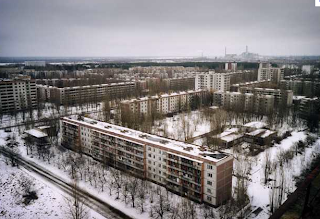

http://www.bbc.co.uk/news/science-environment-12339804
http://www.bbc.co.uk/nature/14325323http://www.google.co.uk/imgres?q=chernobyl&hl=en&safe=active&client=safari&sa=X&rls=en&biw=1024&bih=625&tbm=isch&prmd=imvns&tbnid=ge03Jg_0lNws4M:&imgrefurl=http://20best.blogspot.com/2011/08/pics-of-chernobyl.html&docid=2aDa89CxxDUW1M&w=640&h=438&ei=-1NzTsL_NIav8gOo6ITlDQ&zoom=1&iact=hc&vpx=281&vpy=198&dur=928&hovh=186&hovw=271&tx=175&ty=111&page=10&tbnh=116&tbnw=147&start=134&ndsp=15&ved=1t:429,r:1,s:134&surl=1
In the early hours of 26 April 1986, one of four nuclear reactors at the Chernobyl power station exploded.
Moscow was slow to admit what had happened, even after increased radiation was detected in other countries.
The lack of information led to exaggerated claims of the number killed by the blast in the immediate area.
Contamination is still a problem, however, and disputes continue about how many will eventually die as a result of the world's worst nuclear accident.







No comments:
Post a Comment